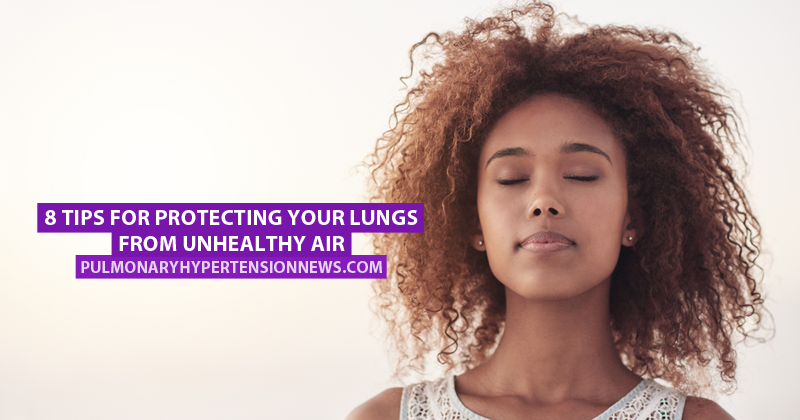8 Tips For Protecting Your Lungs From Unhealthy Air

If you have a chronic lung condition, you’ll need to protect your lungs from being further irritated by unhealthy air. We’ve put together a list of ways to help protect your lungs against unhealthy air using information from the American Lung Association.
Check the daily air pollutant forecasts.
There are sites on the internet and cellphone apps where you can find out the levels of air pollution in your local area. Checking these daily can help you plan your week, helping you avoid being outside or limit your time outside when the pollution levels are high.
Try both indoor and outdoor exercise.
If pollutions levels are high then avoid exercising outside. Either visit your local gym or exercise at home. Indoor shopping malls are good locations for indoor walking if you can’t go outside. Try not to exercise in places where there is a high level of traffic—traffic fumes can pollute areas up to a third of a mile away.
Reduce your carbon footprint.
Using less electricity at home is one way to reduce your carbon footprint which helps to create healthy air for everyone. Reducing the number of car trips you make will also help. Travel by bicycle or public transport, or car share instead. Walk short distances instead of jumping in the car.
MORE: Eighty-one-year-old to walk 500 miles to raise money for pulmonary hypertension research.
Don’t burn trash or wood.
The ash and soot caused by the burning of wood and trash contributes to particle pollution in the atmosphere.
Don’t use gasoline-powered yard equipment.
Gasoline-powered lawn mowers, trimmers, and leaf blowers all add to the air pollution and may irritate your lungs while carrying out your yard chores.
Encourage others to reduce their carbon footprint.
Pressurize your local schools to run their buses according to the Clean School Bus Campaign. That means not leaving the engine running while waiting outside buildings and applying for funding for projects helping to reduce emissions.
Ask friends, family, and neighbors to reduce their energy use.
MORE: What exactly is pulmonary hypertension?
Stay away from smokers.
Don’t allow anyone to smoke in your home or place of work. Try to avoid outdoor places where people smoke cigarettes.
Be an advocate.
Be an advocate for healthier air, supporting local and national campaigns to improve the environment and reduce emissions.
MORE: Six ways you can raise awareness of pulmonary hypertension.
Pulmonary Hypertension News is strictly a news and information website about the disease. It does not provide medical advice, diagnosis or treatment. This content is not intended to be a substitute for professional medical advice, diagnosis, or treatment. Always seek the advice of your physician or another qualified health provider with any questions you may have regarding a medical condition. Never disregard professional medical advice or delay in seeking it because of something you have read on this website.







